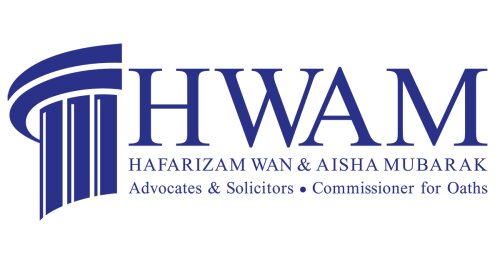Best Mining Law Lawyers in Putrajaya
Share your needs with us, get contacted by law firms.
Free. Takes 2 min.
List of the best lawyers in Putrajaya, Malaysia
About Mining Law in Putrajaya, Malaysia
Mining law in Putrajaya, Malaysia governs the exploration, extraction, and management of mineral resources within the region. As the federal administrative center of Malaysia, Putrajaya's mining activities are regulated by a combination of federal and state legislation, ensuring responsible extraction, environmental protection, and equitable resource distribution. While Putrajaya itself is more renowned for government administration than mining, understanding the legal framework is vital for any parties considering mining activities, investments, or land use connected to minerals and natural resources within the region.
Why You May Need a Lawyer
There are several situations where seeking legal advice regarding mining law in Putrajaya becomes crucial. Common scenarios include:
- Applying for mining leases, licenses, or permits.
- Negotiating contracts or joint ventures for mineral exploration and development.
- Ensuring compliance with environmental regulations and impact assessments.
- Resolving disputes over land use, ownership, or mineral rights.
- Understanding obligations related to health, safety, and worker rights in mining.
- Navigating requirements for reporting, taxation, or export of mined resources.
- Responding to enforcement actions or regulatory investigations.
A qualified lawyer can help interpret complex legal requirements, advise on risk management, draft or review contracts, handle negotiations, and represent clients before authorities or courts if necessary.
Local Laws Overview
Mining activities in Putrajaya and throughout Malaysia are regulated primarily by the Mineral Development Act 1994 (Act 525) for federal matters, as well as relevant state mineral enactments. Key aspects include:
- Licensing and Approvals: All mining operations require proper licensing. The process involves detailed applications, environmental impact assessments (EIAs), and approvals from federal and sometimes state authorities.
- Land Use and Title: Only those holding appropriate rights to land or mineral resources can seek mining licenses. Ownership issues and overlaps may require legal clarification.
- Environmental Protection: Strict regulations exist to ensure sustainable mining practices, reduce pollution, and rehabilitate mined land. Agencies such as the Department of Environment oversee compliance.
- Health and Safety: Operators must comply with workplace health and safety laws, protecting employees and surrounding communities from mining hazards.
- Royalties and Reporting: There are mandatory reporting and royalty payment requirements for all extractive activities.
- Dispute Resolution: Conflicts relating to mining leases, land rights, or agreements may be adjudicated through administrative processes or the courts.
It is essential to consult with professionals to understand how these laws apply to your specific situation, as local rules and policies can change and may vary based on the type of mineral, location, and scale of activity.
Frequently Asked Questions
What authority oversees mining regulation in Malaysia?
The main federal authority is the Department of Minerals and Geoscience, under the Ministry of Natural Resources, Environment and Climate Change. They coordinate with state governments for licensing and enforcement.
Do I need special permission to conduct mining activities in Putrajaya?
Yes, you must obtain the appropriate mining license or lease. This involves applications, technical studies, environmental impact assessment, and approvals from various government entities.
How is environmental impact assessed before starting mining?
The Environmental Quality Act 1974 requires proponents to conduct an Environmental Impact Assessment (EIA) for most mining projects. The Department of Environment must approve the EIA before operations can begin.
Who owns mineral rights in Malaysia?
Generally, all mineral resources in Malaysia are vested in the state authorities, who can then grant rights to individuals or companies through permits, leases, or licenses.
Can foreign companies mine in Putrajaya?
Foreign companies can invest or operate in the mining sector, subject to licensing processes, local equity requirements, and compliance with Malaysian laws and policies.
What are the penalties for illegal mining?
Penalties include fines, imprisonment, confiscation of equipment, and cancellation of licenses. Offenders may also be liable for environmental restoration and damages.
How are royalties determined and paid?
Royalties are payable to the relevant government authority, typically calculated as a percentage of the value or quantity of minerals extracted based on prescribed schedules.
What recourse is available for communities affected by mining?
Affected communities can lodge complaints with regulatory bodies, seek compensation, and pursue legal redress if their rights, land, or well-being are harmed by mining activities.
Can I transfer or sell my mining license?
Transfers or assignments of mining licenses or leases typically require government approval, and parties must follow formal legal procedures.
What steps must I take to close or rehabilitate a mine?
Operators must follow approved mine closure plans, undertake environmental restoration as mandated, and satisfy all legal requirements for decommissioning mining sites.
Additional Resources
If you are seeking more information or support regarding mining law in Putrajaya, consider reaching out to these organizations and resources:
- Department of Minerals and Geoscience Malaysia (Jabatan Mineral dan Geosains Malaysia)
- Ministry of Natural Resources, Environment and Climate Change
- Department of Environment Malaysia
- Malaysian Chamber of Mines
- Malaysian Bar Council
- State Land and Mines Office
- Relevant local authorities for land use and environmental management
Next Steps
If you need legal assistance with mining matters in Putrajaya, Malaysia, consider taking the following steps:
- Gather all relevant documents related to your mining project, land rights, contracts, and previous correspondence with authorities.
- Identify your specific legal concerns, such as licensing, compliance, or disputes.
- Consult a lawyer experienced in mining law and familiar with local regulations in Putrajaya. The Malaysian Bar Council can help you find qualified professionals.
- Arrange a detailed consultation to understand your rights, obligations, and options.
- Follow your lawyer’s guidance on application processes, compliance requirements, or dispute resolution steps to protect your interests and fulfill all legal obligations.
Taking early legal advice can help prevent costly mistakes and ensure your mining activities comply with all laws and regulations in Putrajaya, Malaysia.
Lawzana helps you find the best lawyers and law firms in Putrajaya through a curated and pre-screened list of qualified legal professionals. Our platform offers rankings and detailed profiles of attorneys and law firms, allowing you to compare based on practice areas, including Mining Law, experience, and client feedback.
Each profile includes a description of the firm's areas of practice, client reviews, team members and partners, year of establishment, spoken languages, office locations, contact information, social media presence, and any published articles or resources. Most firms on our platform speak English and are experienced in both local and international legal matters.
Get a quote from top-rated law firms in Putrajaya, Malaysia — quickly, securely, and without unnecessary hassle.
Disclaimer:
The information provided on this page is for general informational purposes only and does not constitute legal advice. While we strive to ensure the accuracy and relevance of the content, legal information may change over time, and interpretations of the law can vary. You should always consult with a qualified legal professional for advice specific to your situation.
We disclaim all liability for actions taken or not taken based on the content of this page. If you believe any information is incorrect or outdated, please contact us, and we will review and update it where appropriate.










